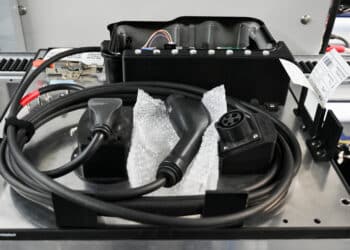Looming Tariff Threat to Lessen New-Vehicle Sales, ABS Volume

MIAMI — Auto ABS is experiencing strong performance this year, but President Donald Trump’s trade war and tariff threat on imported auto parts are expected to prompt a downturn in securitization volume, Jamie Feehely, managing director of securitization at National Bank, said during ABS East last month.
“There are no securitizations done that are 100% used cars,” Feehely said. “If we are going to continue to have a market, we have to rely on new issuances of ABS, and new cars are going to be harder to sell if tariffs go up from virtually zero.”
If the tariffs go through, the industry is going to suffer a dearth of new-car sales as the used market — which is already in high demand — is going to go up, and securitization volumes will decrease.
The question that comes up is why the president is trying to break trade and tariff policies, William Lee, chief economist for the Milken Institute, said at the conference. “Going forward, the trade policy is gearing toward the needs of the 21st century,” Lee said. “What are the rules of the engagement where big countries can engage and open up to each other and have equal access and protection? That’s where I think all this tariff talk is coming from.”
However, captives like Nissan Motor Acceptance Corp. are concerned about the impact of the new tariffs. Nissan’s North America production comprises 72% of the company’s total production, said Treasurer Steve Hetrick. “The concern is down in Mexico where we also have several plants,” he said. “[Tariffs] are front and center, the front of mind, but it’s also something that we have to see if it’s going to develop.”
BMW US Capital is already experiencing the negative results of the Chinese tariffs on U.S. passenger cars that were imposed in retaliation for U.S. duties on Chinese goods, President Stefan Glebke said during the panel. “Once tariffs are implemented for U.S. and Europe we are going to have another hit,” Glebke said. “The automotive industry is a global industry, and all this discussion doesn’t help.”
However, a potential trade agreement could provide the auto industry some relief. Earlier this month, details of a new U.S.-Mexico-Canada trade agreement were announced, which exempts the neighboring countries should the President impose a 25% tariffs on auto imports to the United States.







